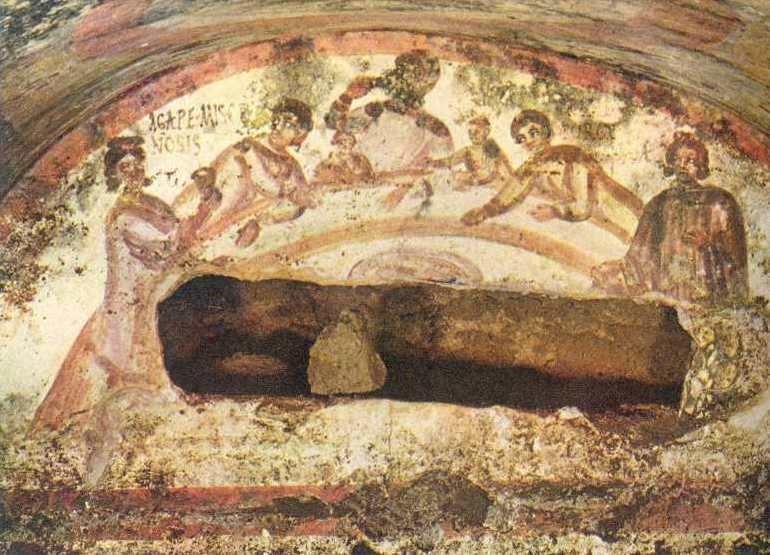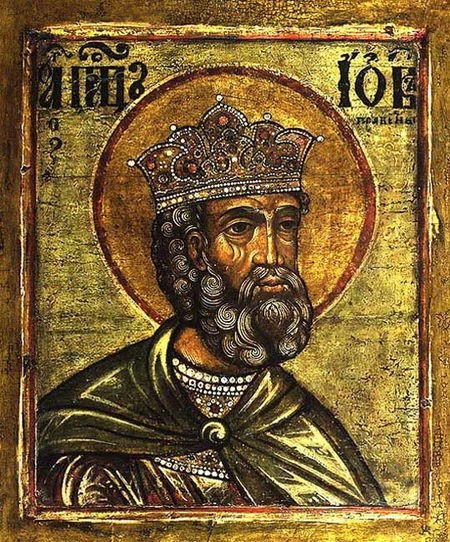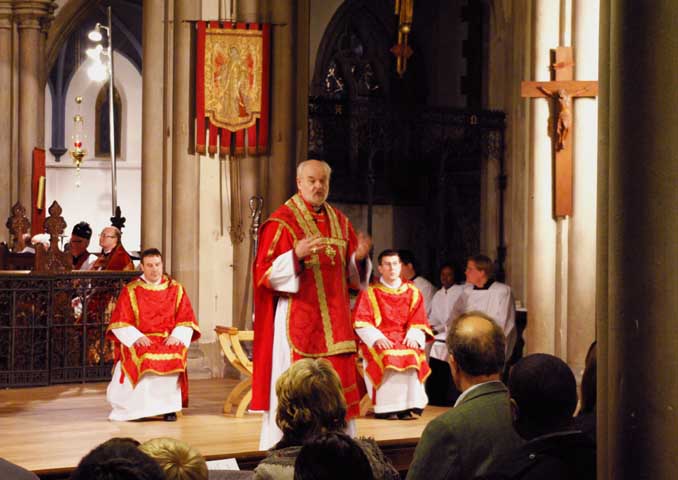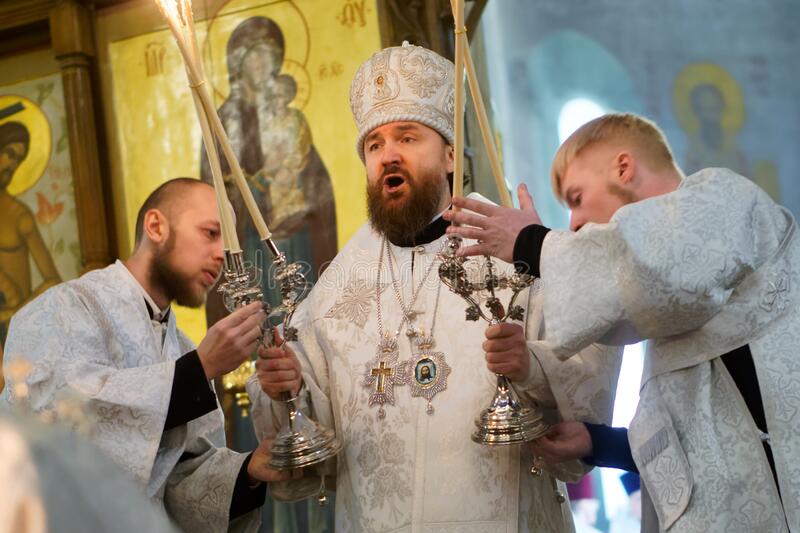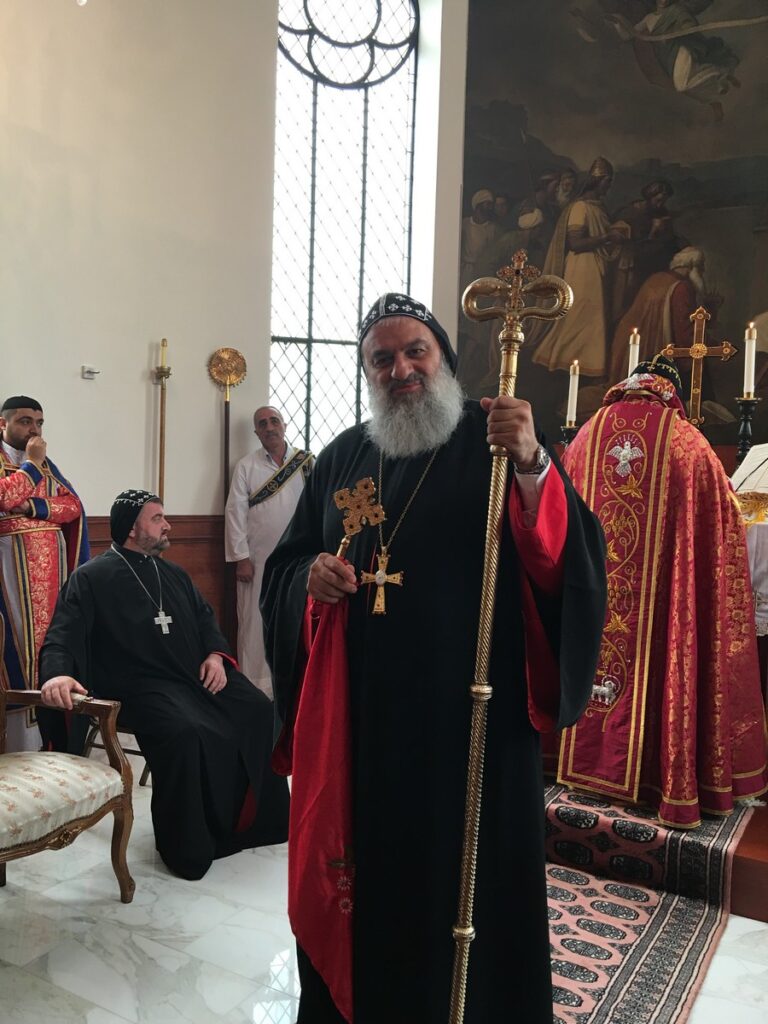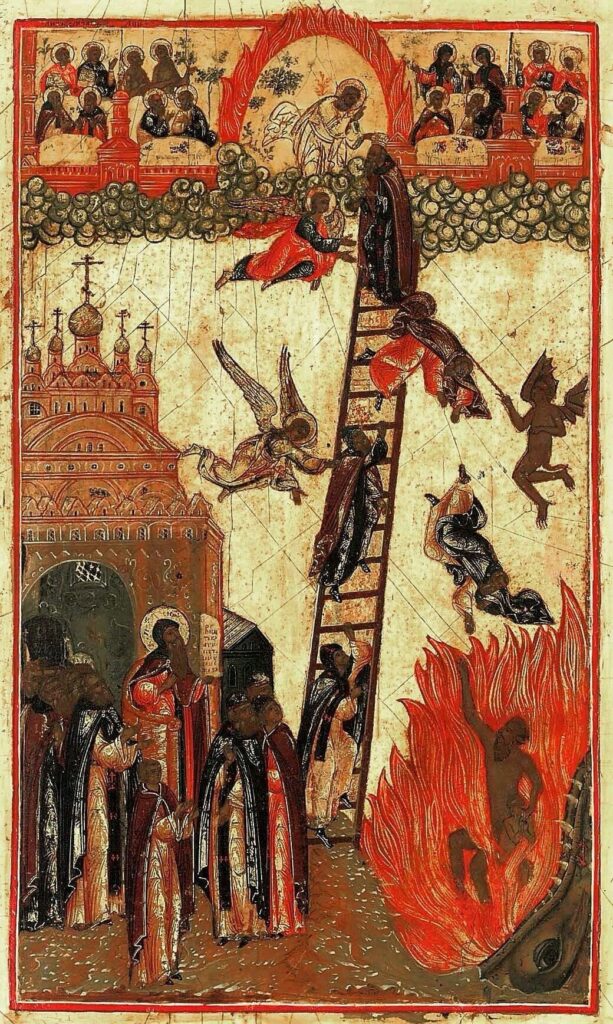
Love waits patiently, it is kind; love is not jealous, love is not conceited, nor is it inflated… nor does it seek its own interests… it bears everything, believes everything, hopes everything, endures everything. (1 Cor. 13:4-7)
This chapter which describes love is perhaps the chapter heard most often because it is read at weddings so often. St. Paul describes love in phrases that are short and simple, just as Plato describes love in a series of short sentences although Plato uses eros rather than agape as the word for “love.” Plato’s praise of love is part of an after-dinner speech in the Symposium and other authors who praised love after that usually made it part of an after-dinner speech as well. St. Paul’s praise of love is also in the context of an after-dinner reflection (cf. 1 Cor. 11:17-34).
Much of what St. Paul writes in 1 Cor 13 also appears in Romans 12. Both chapters are describing what love looks like and how people behave who love one another.
“Love is not jealous.” That is especially important in a parish like Corinth that is torn apart by jealousy. The parishioners are jealous of each other’s spiritual gifts and abilities. They refuse to talk together or eat together. “Conceited” people brag about themselves and their gifts and their abilities, just as the Corinthians bragged.
The Ladder of Divine Ascent (a guide to monastic life but with much applicability to Christians who are not monastics) suggests that jealousy is the result of avarice (Step 17) or pride (Step 23). Avarice always wants, wants, want. It wants more. In Corinth, this creates jealousy because people wanted more spiritual gifts, they wanted what they saw other people had and felt jealous that they did not have these gifts as well. Pride gives birth to jealousy because if I am proud, I want the most and the biggest and most spectacular of the spiritual gifts; pride leads to jealousy if someone has what the proud person wants.
If the parishioners in Corinth claim to practice love, they have to first stop bragging about themselves and being jealous of each other.
The greater the love of God that the saints possess, the more they endure all things for him.
St. Augustine of Hippo, On Patience, 17
Older translations of the New Testament often used “charity” to translate agape.
A man with charity fears nothing for charity casts out fear. When fear is banished and cast out, charity endures all things, bears all things. One who bears all things through love cannot fear martyrdom.
St. Ambrose of Milan, Letter 49
Love (our behavior now), faith (in God and Christ now), and hope (about the General Resurrection, the Kingdom of God, and the Second Coming of Christ) support and complement each other. They define authentic Christian life.

